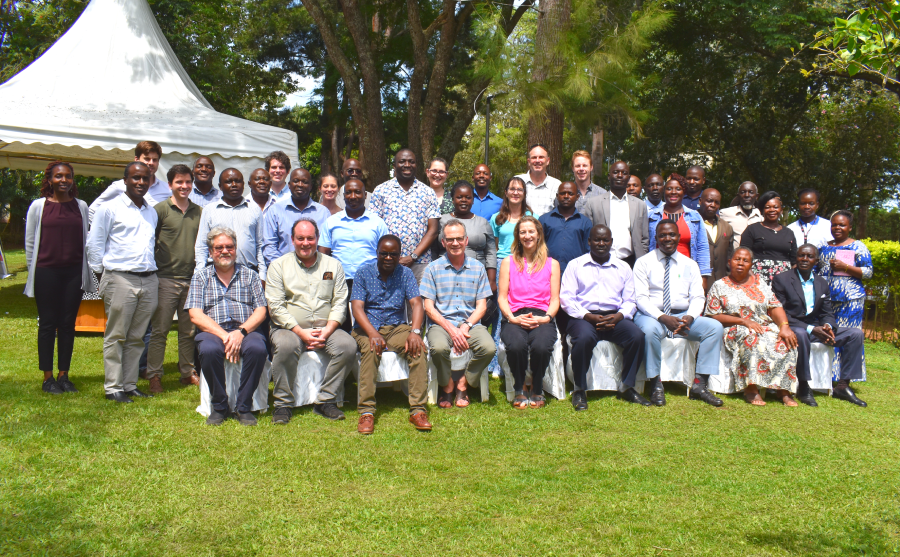
GPC Visit
A symposium was held to discuss the importance of population health research, and to enhance utilization of Unit’s GPC resource.
The event brought together scientists and other stakeholders from the MRC/UVRI and LSHTM Uganda Research Unit, The London School of Hygiene and Tropical Medicine, the MRC Integrative Epidemiology Unit at the University of Bristol, ALSPAC at the University of Bristol, University of Oxford, UCL, Helmhotz Institute, and the Africa Health Research Institute (AHRI) in South Africa, to explore the challenges and opportunities in leveraging population cohort data to maximally advance scientific understanding of various health outcomes and inform evidence-based policymaking.
The power of population cohorts
Speakers emphasized the unique value of the GPC in providing comprehensive, long-term data on the health and well-being of populations. By tracking the development of health conditions, risk factors, and social determinants over time, researchers gain a deeper understanding of the complex dynamics shaping public health.
The symposium observed that the rich datasets and biological samples available at the GPC are currently not fully utilized. This prompted discussions on increasing visibility of the GPC and enhancing access, while establishing strong governance frameworks that ensure responsible and secure data sharing practices that respect the rights and privacy of study participants.
Collaboration for better Public Health impact
Interdisciplinary collaboration among researchers, policymakers, and community stakeholders emerged as essential for maximizing the impact of population cohort data on public health. Aligning research priorities with local community needs and actively involving them at every stage of the research process were further emphasized as key to enhance uptake and impact.
Lessons from other international cohorts, such as the ALSPAC cohort in the UK and the South African Population Research Infrastructure Network (SAPRIN), highlighted opportunities for cross-learning and collaboration.
Sustaining the cohort
Central to discussions was the need for sustainable financing models to support the GPC. Acknowledging the significant investments required to establish and maintain long-term research initiatives, experts advocated for diverse funding sources, including grants, public-private partnerships, and cost recovery mechanisms.
Looking ahead
The symposium generated significant excitement and commitment to maximally harness the opportunities that the GPC provides and maximize its impact. It was agreed to establish a steering committee to help in shaping future scientific direction, research priorities and strategic decisions for the GPC.
If you enjoyed this article and would like to build a career in global health, we offer a range of MSc programmes covering health and data, infectious and tropical diseases, population health, and public health and policy.
Available on campus or online, including flexible study that works around your work and home life, be part of a global community at the UK's no.1 public health university.
